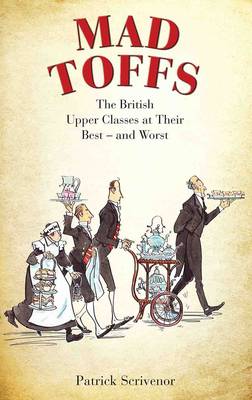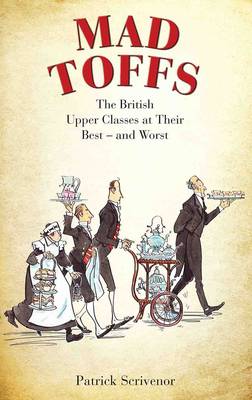
- Afhalen na 1 uur in een winkel met voorraad
- Gratis thuislevering in België vanaf € 30
- Ruim aanbod met 7 miljoen producten
- Afhalen na 1 uur in een winkel met voorraad
- Gratis thuislevering in België vanaf € 30
- Ruim aanbod met 7 miljoen producten
Zoeken
€ 13,95
+ 27 punten
Omschrijving
This record shows the British upper classes--and a few others--displaying a sort of unhinged blitheness of manner that leads them to say and do strangely unexpected things. It is a quality of innocent insolence, or maybe guileless arrogance, which belongs only to the very rich, the very privileged and the very idle. Consider Lord Hartington, son and heir of the seventh Duke of Devonshire, who contrived to shoot dead a pheasant flying low through a gate and the retriever that was pursuing it, while also peppering (a) the retriever's owner, and (b) the chef from Chatsworth House. When asked if he regretted taking this risky shot, Hartington replied, "Well of course. If I had killed Chef we'd have had no dinner." Or the first Earl of Durham who, in the early 19th century, remarked that "GBP40,000 a year is a moderate income--such as one man might jog along with." He was not speaking from experience, his own annual income being a healthy GBP80,000 a year at the time--or between GBP6 million and GBP8 million in today's money. Or the third Duke of Buckingham and Chandos, to whom it was tentatively suggested by his advisers that perhaps employing six chefs was excessive, and one, the pastry cook, might possibly be dispensed with, as an economy. The Duke gazed bleakly at his straitened future. "Can't a chap have a biscuit?" he complained. Patrick Scrivenor has combed the annals of the British aristocracy to provide an illuminating←and wildly funny--portrait of people who, though often talented in their own fields, courteous and well-meaning, generous and even liberal-minded, none the less display a certain disconnectedness from the realities that tend to afflict the less elevated echelons of society. The result is clear evidence that what many call "eccentricity," the more rational would probably describe as "plain bonkers."
Specificaties
Betrokkenen
- Auteur(s):
- Uitgeverij:
Inhoud
- Aantal bladzijden:
- 288
- Taal:
- Engels
Eigenschappen
- Productcode (EAN):
- 9781784187675
- Verschijningsdatum:
- 1/01/2017
- Uitvoering:
- Paperback
- Formaat:
- Trade paperback (VS)
- Afmetingen:
- 127 mm x 203 mm
- Gewicht:
- 314 g

Alleen bij Standaard Boekhandel
+ 27 punten op je klantenkaart van Standaard Boekhandel
Beoordelingen
We publiceren alleen reviews die voldoen aan de voorwaarden voor reviews. Bekijk onze voorwaarden voor reviews.







